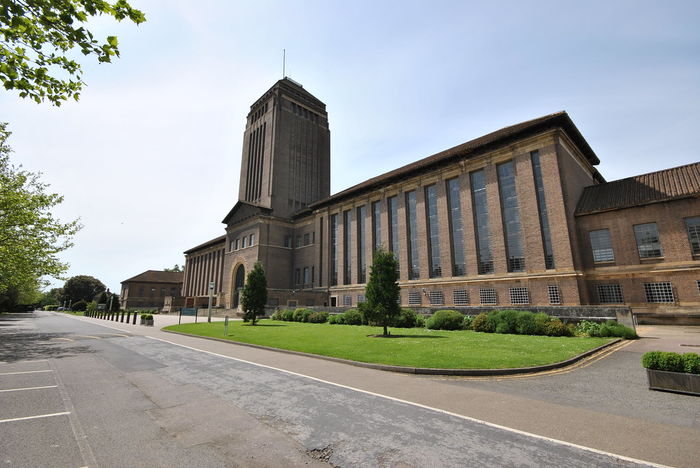It’s time for Cambridge to go plant-based
Scenes at an Emma formal raised eyebrows across Cambridge. Is it time for colleges to step up about the role of dietary choices in the climate crisis? Staff Writer Maia Livne thinks so

Forget freedom of speech, embrace the freedom of feast. If some devoted twitter-hacks would only seize the moment, we might be witnessing the glorious dawn of a new academic vogue — the right to eat beef at vegan events. After fellows of Emmanuel College were served meat at a ‘green week’ vegan formal in May, some comments defended the fellows “freedom of choice”. And therein lies the root of the problem. Are there cases where our personal choices could benefit from institutional guidance? Is climate change one of those cases, where personal choices are no longer a powerful enough tool?
The Emma formal is a tale of cringe foretold; a bureaucratic misstep that could only be made by someone unaware of the ironic mise en scène they were creating — adults eating beef in green week, perched at a high table of ignorance, in front of rows of climate-conscious teenagers — the symbolism of the scene rivals the script of Sex Education. In a sense, perhaps it is logical that an occasion as symbolic as a vegan formal, intended to raise green awareness, would give rise to symbolic conflicts. The baby-blue walls of Emmanuel’s hall managed to encapsulate the intergenerational tensions of climate change even before dessert was deserved.
"Instead of allowing the juxtaposition of personal choices seen at Emma, whole institutions should give up meat"
Though some might argue that eating meat is always an unethical choice, one has to admit that that night’s beef has not single handedly destroyed the climate. But we can extrapolate this micro-event to broader conversations and reach bolder conclusions. Maybe in emergencies, people shouldn’t have green weeks, though those are great. Maybe they should have green years and green centuries — maybe instead of allowing the kind of juxtaposition of personal choices seen at Emma, whole institutions should give up meat.
While many would concede that eating meat is bad for the environment, they might also say it is unfair to force a lifestyle on something as personal as eating habits. What we fail to consider, however, is that it is incredibly unfair to place responsibility for solving the climate crisis, preserving essential resources for the next generations and cleaning our oceans squarely on individuals’ personal choices.
Vegetarian and vegan diets will play a key role in addressing the climate crisis, but would only have a significant impact if taken up en masse. To go zero-waste, avoid plastic straws like the plague and compost with fervour are not bad things, but they do not change the grand scheme of things as much as we would hope. To hope that everyone will individually shift their habits to an environmentally friendly lifestyle is unrealistic, as most people do not have the time, budget, or mental wherewithal to replan their lives— or simply don’t care.
The pressure placed on individuals to solve a crisis caused by corporations and governments threatens to exhaust any drive for activism among those who want to help, and breaks down the potential of community into helpless individuals, trying to calculate the ethics of their avocado toast. If this were a problem which would allow us decades to gradually change people’s minds and habits, we could pray that the vegan mindset would trickle through society — but this is an emergency, and in emergencies the community should work as a whole, and in the case of dietary habits we should expect the institutions in which we eat and live to help us adapt to the circumstances.
"Institutions hold the power to change everyday habits in an effective, non-violent way"
Institutions hold the power to change everyday habits in an effective, non-violent way, because they do not force a person to change their core values or personal routine, they change habits for them, making accepting those changes the lazy, easy choice, while sticking to plant-destructive habits becomes a conscious and costly decision. When cigarettes were banned from closed public places, cigarette consumption decreased, because it became far less convenient to smoke. No one came into people’s houses and plucked the cigarette out of their mouths, but people’s health all around the globe benefitted from the decrease in passive and active smoking. Why shouldn’t this be the case with meat?
A university, unlike the average citizen, could dedicate the time and resources to making plant-based diets a healthy, economic alternative. Creating diverse and nourishing vegetarian and vegan menus could introduce people to a diet they were unequipped to approach until now.
Surveys and conversations could map out the challenges in this transition and find solutions to it, making sure that students will still feel comfortable with the food they eat. The stamp of approval from central institutions, which are respected by mainstream public opinion can also legitimise changes that are still considered fringe and radical by many. Most colleges already offer top-notch vegan and vegetarian alternatives, and it might just be time to make the alternative the go-to choice.
Unfortunately, this does not go to say that Cambridge University alone could go far in resolving such a vast and complex issue, but seeking institutional change might be the new mindset we should embrace. The university has already proven commitment to fighting the climate crisis when it decided to divest from fossil fuels by 2030. Broad changes such as these, which would once have been considered unthinkable, can and should be brought into our everyday lives as well.
 Comment / Plastic pubs: the problem with Cambridge alehouses 5 January 2026
Comment / Plastic pubs: the problem with Cambridge alehouses 5 January 2026 News / Cambridge businesses concerned infrastructure delays will hurt growth5 January 2026
News / Cambridge businesses concerned infrastructure delays will hurt growth5 January 2026 News / New movement ‘Cambridge is Chopped’ launched to fight against hate crime7 January 2026
News / New movement ‘Cambridge is Chopped’ launched to fight against hate crime7 January 2026 News / AstraZeneca sues for £32 million over faulty construction at Cambridge Campus31 December 2025
News / AstraZeneca sues for £32 million over faulty construction at Cambridge Campus31 December 2025 News / Uni-linked firms rank among Cambridgeshire’s largest7 January 2026
News / Uni-linked firms rank among Cambridgeshire’s largest7 January 2026









